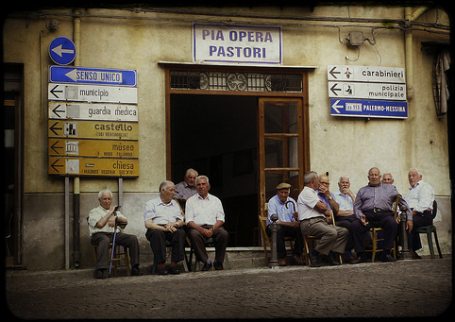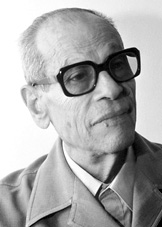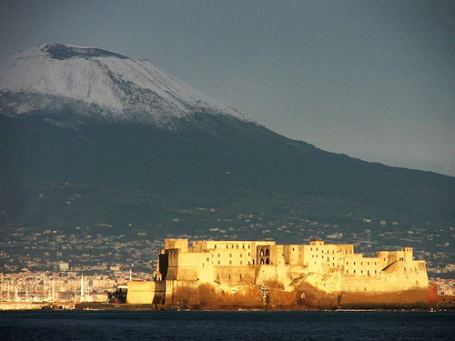We were here talking on how globalization also had the opposite effect, of reaction and rediscovery of cultural identities. Let me expand on this a bit with a few memories.
[This post has been originally written in Italian]
The White-Bearded Bon Père
I was working in Tunisia at the time the campaign for the second re-election of George W. Bush was about to start. I often wandered around Tunis with a taxi driver, this beautiful white-bearded old man I conversed with on many things, politics, culture etc. He greatly helped me to explore the city since he knew every alley, every aspect of it.
I almost always ate at La Goulette, the main port of Tunis (see an overview above) where many Italians emigrated between 1700-1800 before they even ever thought to leave for America.
An area of the port bears in fact the name of la Petite Sicile. There I enjoyed fresh fish that fishing boats carried almost to the waterfront restaurants.
Ah quel vie, quelle poésie, la francophonie sur la mer de Carthage, la cuisine locale, les vins, le délicieux poisson!
(My table-companions were Tunisian and Italian and we always spoke French. Unforgettable memories)
One day, while the old man was driving me as usual to the port’s restaurants, I said to him:
“What if Bush had already captured Osama Bin Laden and pulled him like a rabbit out of his hat at the last minute so that his victory in the forthcoming elections would be devastating?”
“They are too intelligent to fall into traps like that,” the old man replied with shiny eyes.

Minaret of the Great Mosque in Tunis seen from an alley of the Medina. Click for credits and to enlarge
Such an answer, given like that, with dreamy eyes, from this dear and good old man whom everyone called le père for his wisdom and who strongly condemned terrorism, puzzled me. I dropped the subject (and perhaps I shouldn’t have.)
Well, I thought later, if this touches the heart of such a wise old man, it is not difficult to imagine what 9/11 may have meant for thousands of young people: a fire, a burst of renewed Muslim pride which swept them and drove them to follow the example (still partly does unfortunately) of the “heroes” of the Twin Towers who sacrificed themselves – for the sake of Allah, his prophet and the civilization they represent – in such an insane, ruthless but also immensely spectacular (to them) way.
Pride Refound and Terrorism
Until September 11 the Muslims had always been badly beaten – the war lost in only six days by their venerable Egyptian leader Gamal Abdel Nasser, the West always trying to control their oil resources, Israel’s creation as guardian of the Middle-East and champion of the West etc.
At the time of the London bombings (7 July 2005) many had wondered how it was possible that almost adolescent, honest-faced youths had blown themselves up as suicide bombers thus killing dozens of helpless bystanders. Weren’t terrorists wicked, bloodthirsty killers?
Questions such as this show in my opinin a certain lack of understanding – of the human soul, of (fundamentalist) faith and of what the Islamic revolution meant to Muslims and especially to the Muslim youth, from the time of the Ayatollah Khomeini onward.
ψ
A strong but also humiliated culture, Islam, which resists globalization, but unfortunately when reacting with terrorism does the wrong thing totally, giving rise to distrust, hatred (and isolation) all around it.
Tunisians however (not only them) are good and moderate, friends of Italy and of the West. And a great number of them display self-critical attitudes:
Ouvrir les yeux sur soi et sur l’Occident suppose que le monde musulman cesse de se poser en perpétuelle victime. “C’est toujours la faute de l’autre, note Mohamed Charfi: le colonisateur, l’impérialisme, le système financier international, le FMI, la Banque mondiale. Quand amorcera-t-on l’autocritique qui permettra un diagnostic lucide de nos échecs ?”
ψ
Related posts:










